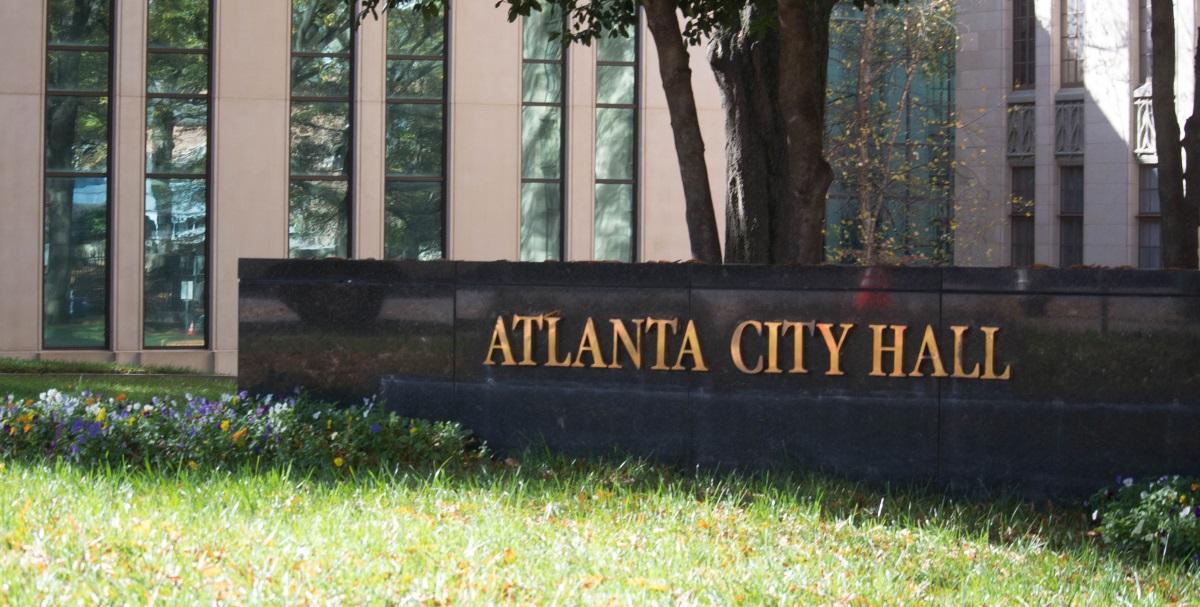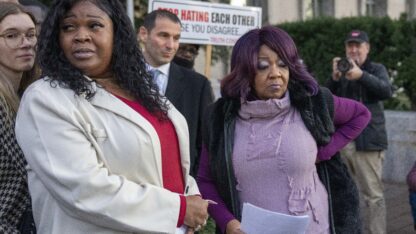This summer, the City Council approved $26 million in bond funding — to match $25 million from the United Way — to renovate some shelter spaces, and find more.
But there are few specifics so far. Council member Mary Norwood, the front-runner in polls so far, said any funding sent to supportive housing — like a shelter — has to come with conditions to ensure it is run, as she put it, “correctly.”
“One of the problems with supportive housing is, people say, ‘I don’t want that in my neighborhood,” Norwood said. “So it needs to come with security; it needs to be a well-run facility. Everyone knows what being a good neighbor means. Being a good neighbor is not the kind of neighbor that Peachtree-Pine has been all these years. Lots of great intentions there, but it just hasn’t been a good neighbor. I think we all understand what that means.”
Several candidates said the $50 million from the city and United Way is a start, but nowhere near enough.
Former city Chief Operating Officer Peter Aman joined others in calling for additional city and state funding, along with better coordination with private sector efforts to curtail homelessness.
Aman also took a shot at Norwood’s record, in an exchange with moderator Bill Bolling.
“I do think that we need to have organizations that are conscious and work with their neighbors — that, I think, is a good point,” Aman said. “I question — I’ve heard Mary talk about not funding the $50 million, and not working on homelessness services, so that’s something that I’m concerned about.”
Bolling interjected, “I just got her commitment now.”
But where to get more government money? Several candidates brought up taxes — either new ones, or higher existing ones, or bigger shares of current tax revenue devoted to affordable housing programs and help for the homeless.
Former Atlanta State Senator Vincent Fort:
“The City is losing money and is not collecting sales tax on online purchases and that kind of thing. But at the same time, we need to reassess the tax subsidies, tax breaks, tax credits that we’re giving.”
Atlanta City Council President Ceasar Mitchell:
“We could possibly use, number one, social impact bonds. That’s the way you actually issue a bond that allows for you to have revenue to achieve certain social purposes alongside certain commercial purposes. We should look at our sales tax levels. Several years ago, when these taxes were put in place, we didn’t have the ability to carve them up into fractional taxes. We can do that now. And I believe we should take one of the pennies we have and carve it up and use a portion of that penny to be a dedicated source for affordable housing.”
City Council member Keisha Lance Bottoms:
“I do look forward to being successful in lobbying the state to allow the city to designate a percentage of property sales over $1 million for certain issues in the city — whether it be increasing our green space, or whether it be addressing homelessness in the city.”
Former City Council President Cathy Woolard:
“Parking taxes for commercial parking is the obvious one, because businesses can pay for it — out-of-town visitors in particular. But citizens aren’t going to like it very much, because the cost of parking is already expensive, and we’re not used to that. But it’s the one thing I think we can get through the General Assembly, and as somebody said, it’s probably $30 to $40 million, and we ought to think about that one in particular.”
City Council member Kwanza Hall called for a new version of a funding model from the administration of Mayor Bill Campbell: a public-private formula, in coordination with the Atlanta Housing Authority. Hall also suggested trying to get money back from the state:
“We’ve got to talk back to the state, to see if we can get pieces of the tax credits that now they send downstate,” Hall said.
Many of the candidates endorsed more than one funding approach, and some of the tax ideas received support from several candidates. There were also suggestions that city zoning laws be changed to encourage the development of affordable housing.
As Lance Bottoms and Woolard mentioned, new tax proposals would need an OK from the state legislature. Spending more existing budget money on housing will take funds away from other city programs.
And relying on private sources will take a lot of coordination. Chances are, the new mayor will try all of the above — which makes an affordable housing policy not only difficult — but complicated. And the closing of Peachtree-Pine makes it more urgent as well.
Editor’s Note: With 13 candidates in the race, it was not possible to include them all in this single story. Starting on Wednesday, Sept. 20, “Closer Look” host Rose Scott will begin a series of interviews with each of the mayoral candidates, beginning with Council member Kwanza Hall. You can find the “Closer Look” series on affordable housing here.
On Thursday, Oct. 12, “Morning Edition” host Denis O’Hayer will moderate the Atlanta Press Club mayoral debate. It will be live-streamed on the Press Club website at 10 a.m. You can hear it at 8 p.m. on Thursday, October 12, and you can watch it at 10 a.m. on Sunday, Oct. 15 on PBA30.
Also, at 6 p.m. on Tuesday, Sept. 19, WABE’s Scott will moderate a forum with the candidates for mayor of Atlanta on transportation.

9(MDAxODM0MDY4MDEyMTY4NDA3MzI3YjkzMw004))








